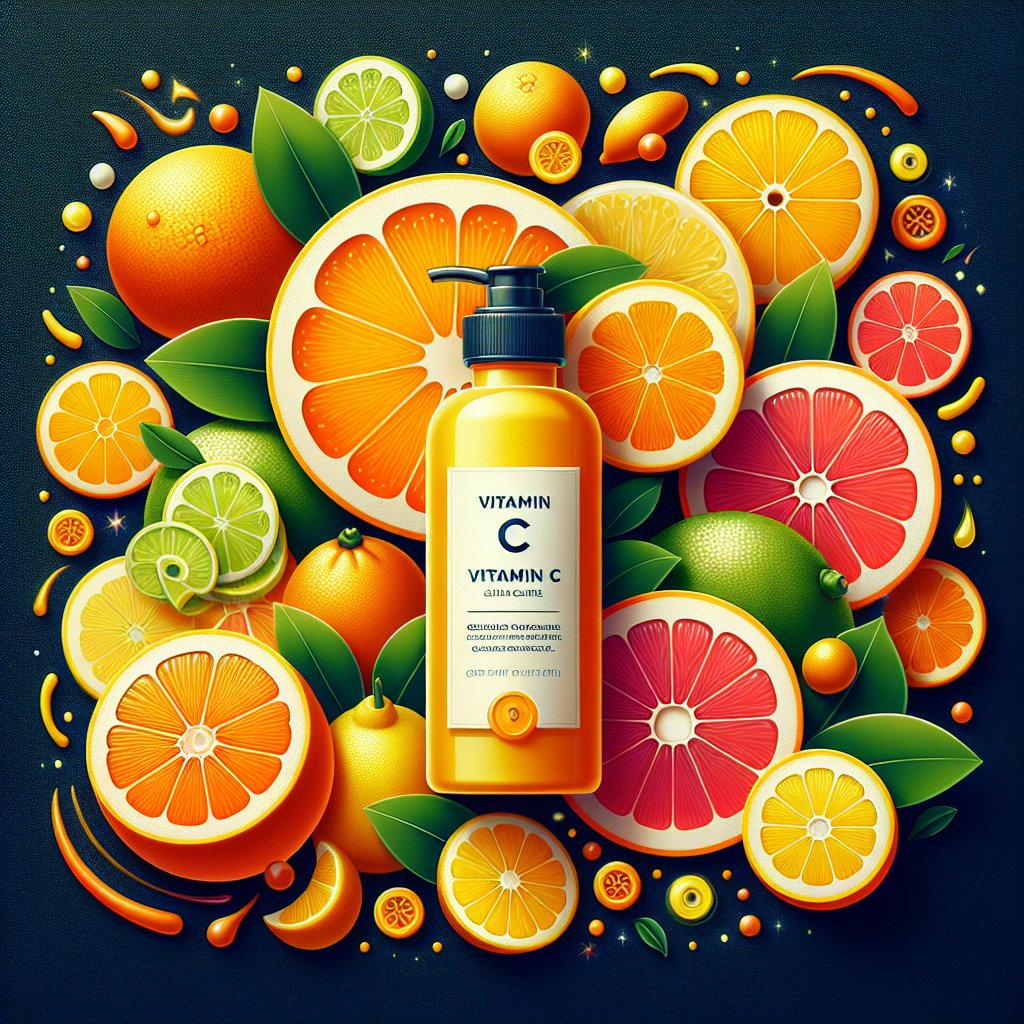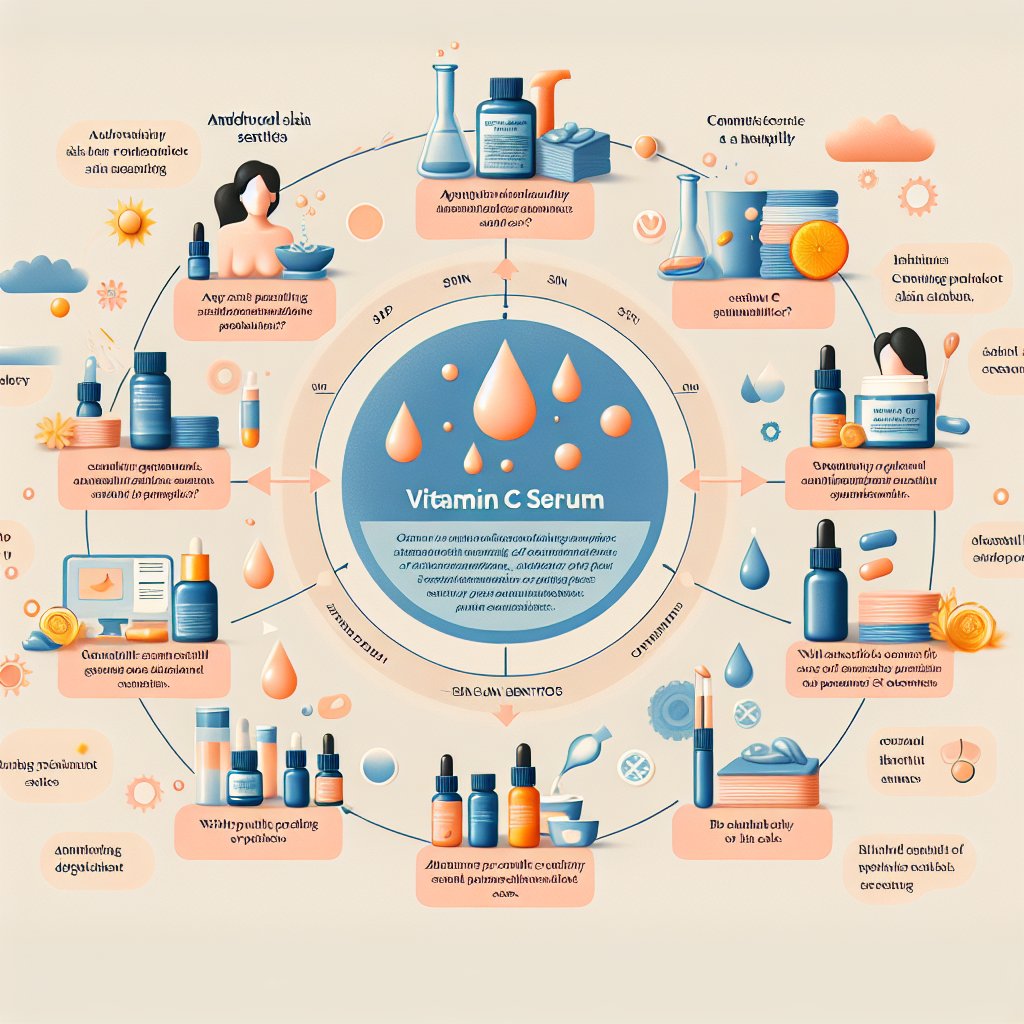Unlock the Secret to Radiant Skin with Retinol and Vitamin C: The Ultimate Guide to Glowing Complexion!
Unlock the Secret to Radiant Skin with Retinol and Vitamin C: The Ultimate Guide to Glowing Complexion!
Welcome, beautiful ladies! Today, we’re diving into the captivating world of skincare and unlocking the secrets to achieving a radiant, glowing complexion. Whether you’re new to the skincare game or a seasoned pro, understanding the importance of skincare and the role of retinol and vitamin C is essential for maintaining healthy, supple skin. Let’s explore the remarkable benefits of these two powerhouse ingredients and how they can transform your skincare routine.
The Importance of Skincare
First things first, let’s talk about the significance of skincare. Our skin is the largest organ of our body and plays a crucial role in protecting us from external elements. It acts as a barrier against pollution, UV rays, and harmful pathogens. Therefore, taking care of our skin is not merely about looking good but also about maintaining our overall health and well-being.
Research has shown that a consistent skincare routine can help prevent premature aging, reduce the risk of skin conditions, and boost our confidence. By nurturing our skin with the right ingredients and practices, we can enhance its natural beauty and resilience.
The Role of Retinol and Vitamin C
Now, let’s delve into the superhero ingredients, retinol, and vitamin C. These two powerhouses are renowned for their remarkable benefits in skincare. Retinol, a derivative of vitamin A, is celebrated for its ability to stimulate collagen production, diminish fine lines and wrinkles, and promote overall skin firmness. It also aids in combating acne and reducing hyperpigmentation, giving us a smoother and more even complexion.
Vitamin C, on the other hand, is a potent antioxidant that brightens the skin, evens out skin tone, and protects against environmental stressors. It plays a crucial role in repairing and preventing sun damage, making it a must-have for achieving healthy and radiant skin.
Scientific studies have confirmed the efficacy of retinol and vitamin C in improving skin texture, reducing hyperpigmentation, and enhancing overall skin health, making them indispensable components of a well-rounded skincare regimen.

Benefits of Retinol in Skincare
Retinol, a derivative of vitamin A, has garnered quite the reputation in the skincare world, and for good reason. The benefits of incorporating retinol into your skincare routine are plenty and can lead to a significant transformation in the overall health and appearance of your skin.
Reducing Wrinkles and Fine Lines
One of the most celebrated benefits of retinol is its remarkable ability to reduce the appearance of wrinkles and fine lines. According to a study published in the American Academy of Dermatology, retinol works by promoting collagen production, which is crucial for maintaining skin elasticity and firmness. This means that regular use of retinol can visibly diminish the signs of aging, giving you a smoother and more youthful complexion.
Improving Skin Texture and Tone
Research has shown that retinol can also contribute to improving overall skin texture and tone. A study in the Clinical Interventions in Aging revealed that retinol aids in accelerating cell turnover, which helps to slough off dead skin cells more efficiently. This process leads to a smoother and more radiant skin surface. Additionally, retinol has been found to have skin brightening effects, helping to reduce the appearance of dark spots and hyperpigmentation, resulting in a more even complexion.
Moreover, the use of retinol has been linked to an improvement in acne-prone skin. Its exfoliating properties help to unclog pores and prevent breakouts, making it a versatile treatment for various skin concerns.
With these impressive benefits, it’s clear why retinol has become a staple in many skincare routines. Whether you’re looking to diminish fine lines, achieve a more even skin tone, or combat acne, incorporating retinol can be a game-changer for your skin.
Now that we’ve uncovered the incredible benefits of retinol, let’s explore another powerhouse ingredient, vitamin C, and how it can further elevate your skincare regimen.
Benefits of Vitamin C
If you’re looking for a superstar ingredient to incorporate into your skincare routine, look no further than vitamin C! This powerful antioxidant not only brings a dose of radiance to your complexion but also offers a myriad of benefits for your skin’s health.
Antioxidant Properties
Vitamin C acts as a potent antioxidant, helping to protect the skin from free radical damage caused by environmental stressors such as UV radiation and pollution. By neutralizing free radicals, vitamin C helps to prevent premature aging and supports the skin’s natural regeneration process.
Skin Brightening
One of the most sought-after benefits of vitamin C is its ability to brighten the skin. Research has shown that vitamin C can help to fade pigmentation and dark spots, resulting in a more even-toned complexion. Regular use of vitamin C can also impart a healthy, luminous glow, making your skin appear more vibrant and youthful.
Promotes Collagen Production
Collagen is the protein responsible for maintaining the skin’s firmness and elasticity. Vitamin C plays a crucial role in the synthesis of collagen, which is essential for keeping the skin plump and wrinkle-free. By promoting collagen production, vitamin C helps to diminish the appearance of fine lines and wrinkles, giving your skin a smoother and more youthful texture.
Adding a vitamin C serum or moisturizer to your daily skincare routine can work wonders for your skin’s overall health and appearance. With its antioxidant properties, skin-brightening effects, and collagen-boosting abilities, vitamin C is truly a game-changer for achieving a radiant complexion.
Combining Retinol and Vitamin C
When it comes to skincare, there are two powerhouse ingredients that are often touted as must-haves for a glowing complexion: retinol and vitamin C. These two components, when used in conjunction, can work wonders for your skin. Let’s dig into the science behind how the combination of retinol and vitamin C can enhance each other’s effectiveness in skincare routines.
The Science Behind It
Scientific research has shown that when retinol and vitamin C are used together, they can complement each other’s effects, leading to enhanced skin benefits. Vitamin C, also known as ascorbic acid, is a potent antioxidant that helps brighten the skin, protect it from environmental stressors, and stimulate collagen production. On the other hand, retinol, a derivative of vitamin A, is celebrated for its anti-aging properties, aiding in reducing the appearance of fine lines and wrinkles, and improving skin texture and tone. When these two ingredients are combined, they can work synergistically to boost collagen production, protect against free radicals, and diminish the signs of aging, resulting in a radiant and youthful complexion.
The magic happens due to the ability of vitamin C to stabilize retinol. Retinol can be unstable and prone to degradation when exposed to light and air. Vitamin C acts as a stabilizer, preventing the degradation of retinol, thereby ensuring its potency and effectiveness when applied to the skin.
By incorporating both retinol and vitamin C into your skincare routine, you can address multiple skin concerns simultaneously, reaping the combined benefits of these powerhouse ingredients, and achieving a radiant, youthful glow.
Unlock the Secret to Radiant Skin: The Ultimate Guide to Glowing Complexion!
How to Incorporate Retinol and Vitamin C in Skincare Routine
So, you’ve heard about the amazing benefits of retinol and vitamin C for your skin, and you’re eager to incorporate these powerhouse ingredients into your skincare routine. But how do you go about doing it? Don’t worry, I’ve got you covered with some easy guidelines to help you make the most of these incredible skincare heroes.
Introducing Retinol
Retinol, a form of vitamin A, is renowned for its ability to reduce the appearance of fine lines and wrinkles, smooth skin texture, and enhance overall radiance. However, it’s essential to introduce retinol gradually to allow your skin to acclimate to this potent ingredient.
Getting Started with Retinol
Begin by using retinol 1-2 times per week, preferably at night, to minimize the potential for irritation. As your skin becomes more accustomed to it, you can gradually increase the frequency of use. Remember to always wear sunscreen during the day, as retinol can make your skin more sensitive to the sun.
Incorporating Vitamin C
Vitamin C is a powerhouse antioxidant that brightens the skin, evens out skin tone, and shields it from environmental stressors like pollution. To make the most of its benefits, add a vitamin C serum to your morning skincare routine.
Using Vitamin C in Your Routine
After cleansing your skin in the morning, apply a few drops of vitamin C serum to your face and neck. Follow it up with your moisturizer and sunscreen to lock in the protective benefits of vitamin C throughout the day.
By following these guidelines, you can effectively introduce and use retinol and vitamin C in your skincare routine, unlocking the secret to a radiant and glowing complexion! Remember to be patient and consistent, and soon you’ll be reaping the incredible rewards of these superstar ingredients.
Potential Side Effects and Precautions
While retinol and vitamin C are powerhouse ingredients for achieving radiant skin, it’s essential to be aware of their potential side effects and take precautionary measures to minimize adverse reactions.
Side Effects of Retinol
Retinol, a derivative of vitamin A, can cause skin dryness, redness, and peeling, especially during the initial weeks of use. Some individuals may also experience increased sensitivity to the sun, leading to a higher risk of sunburn. In rare cases, retinol may cause allergic reactions, such as hives or itching.
Side Effects of Vitamin C
Vitamin C is generally well-tolerated, but in some cases, high concentrations of topical vitamin C serums may cause mild irritation or stinging sensation, particularly for individuals with sensitive skin. Oral vitamin C supplements in large doses may lead to digestive discomfort, including diarrhea and nausea.
Precautionary Measures
To minimize potential side effects when using retinol and vitamin C, consider the following precautionary measures:
- Gradual Introduction: Start with a lower concentration of retinol and vitamin C and gradually increase the strength as your skin acclimates.
- Sun Protection: Always apply a broad-spectrum sunscreen with an SPF of 30 or higher during the day when using retinol to protect your skin from sun damage.
- Hydration: Maintain proper skin hydration by using a moisturizer to alleviate dryness and minimize potential irritation.
- Patch Testing: Before full application, perform a patch test on a small area of your skin to check for any adverse reactions or allergies.
- Consultation: If you have any underlying skin conditions or are uncertain about using retinol or vitamin C, consult with a dermatologist or skincare professional for personalized advice.
Choosing High-Quality Products
When it comes to skincare products, not all retinol and vitamin C formulations are created equal. It’s essential to select reputable and high-quality products to ensure optimal results for your skin. Here’s how to navigate the selection process and find the perfect products for your skincare routine.
Look for Stability and Packaging
Both retinol and vitamin C are sensitive to light and air, which can degrade their potency over time. When choosing products, opt for those that come in opaque and airtight containers. These help to maintain the stability of the active ingredients, ensuring that they remain effective from the first use to the last.
Check Concentrations
For retinol, look for concentrations between 0.25% to 1%, as this range has been found to be effective without causing excessive irritation. When it comes to vitamin C, a concentration of 10-20% is considered optimal for effectiveness and tolerability.
Seek Third-Party Testing
Reputable brands often undergo third-party testing to validate the efficacy and safety of their products. Look for certifications or endorsements from independent labs or dermatologists, which can provide added assurance of the product’s quality and performance.
By considering these factors and doing thorough research, you can select high-quality retinol and vitamin C products that will optimize your skincare routine and help you achieve that radiant, glowing complexion you’ve been dreaming of.
Conclusion: Achieve Glowing Skin with Retinol and Vitamin C
Incorporating retinol and vitamin C into your skincare routine can truly be a game-changer for achieving healthy, radiant skin. These two powerhouse ingredients work synergistically to address a multitude of skin concerns, from premature aging to uneven skin tone, ultimately leading to a glowing complexion.
Research has shown that retinol, a derivative of vitamin A, helps stimulate collagen production, reduce the appearance of fine lines and wrinkles, and even out skin texture. On the other hand, vitamin C, a potent antioxidant, protects the skin from environmental aggressors, brightens the complexion, and helps fade dark spots and discoloration.
When used in combination, retinol and vitamin C become a dynamic duo that promotes overall skin health and vitality. By boosting collagen synthesis and combating free radical damage, these ingredients can help you achieve a smoother, firmer, and more youthful-looking complexion.
It’s important to note that while both retinol and vitamin C offer incredible benefits, they should be introduced gradually into your skincare routine to prevent irritation and maximize efficacy. Start by using retinol a few times a week and gradually increase frequency as your skin adjusts. Vitamin C can be used daily in the morning to take advantage of its protective effects against UV damage and pollution.
By consistently incorporating retinol and vitamin C into your skincare regimen, you can look forward to a renewed, radiant complexion that exudes health and vitality. Remember, patience is key when it comes to skincare – the results are well worth the wait!


